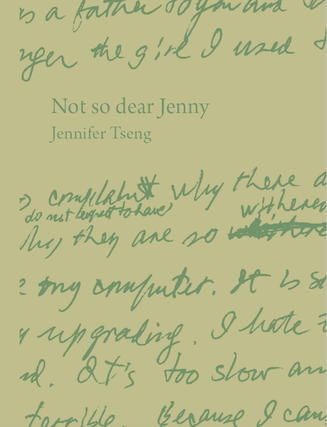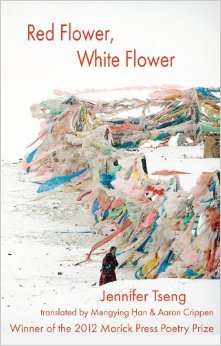|
“Like you, I died & became / English words.” The speaker of Jennifer Tseng’s Not so dear Jenny is a speaker deeply attuned to both the harm and the healing that language can do. Drawing on language from a father/phantom’s letters, the daughter/darer of these poems reconstructs adolescence, deconstructs diaspora, and gorgeously makes song out of sorrow. These poems sing and sting. A father’s appeal becomes a daughter’s appall; university morphs into universal; Diane turns out to be Diana; to remember is to “member it again / & again,” to “dream the embers of a hooded / nation into place”; and two people can and do share a face—“Every morning I see / You mourning in the mirror.” Jennifer Tseng reminds us of the power of address, the dangers and the liberations of the epistolary. This chapbook made me weep and ravenously wonder. - Chen Chen, author of WHEN I GROW UP I WANT TO BE A LIST OF FURTHER POSSIBILITIES |
NOT SO DEAR JENNY, published by Bateau Press, is SOLD OUT.
Letterpress cover & design by Amy Borezo of Shelter Bookworks



